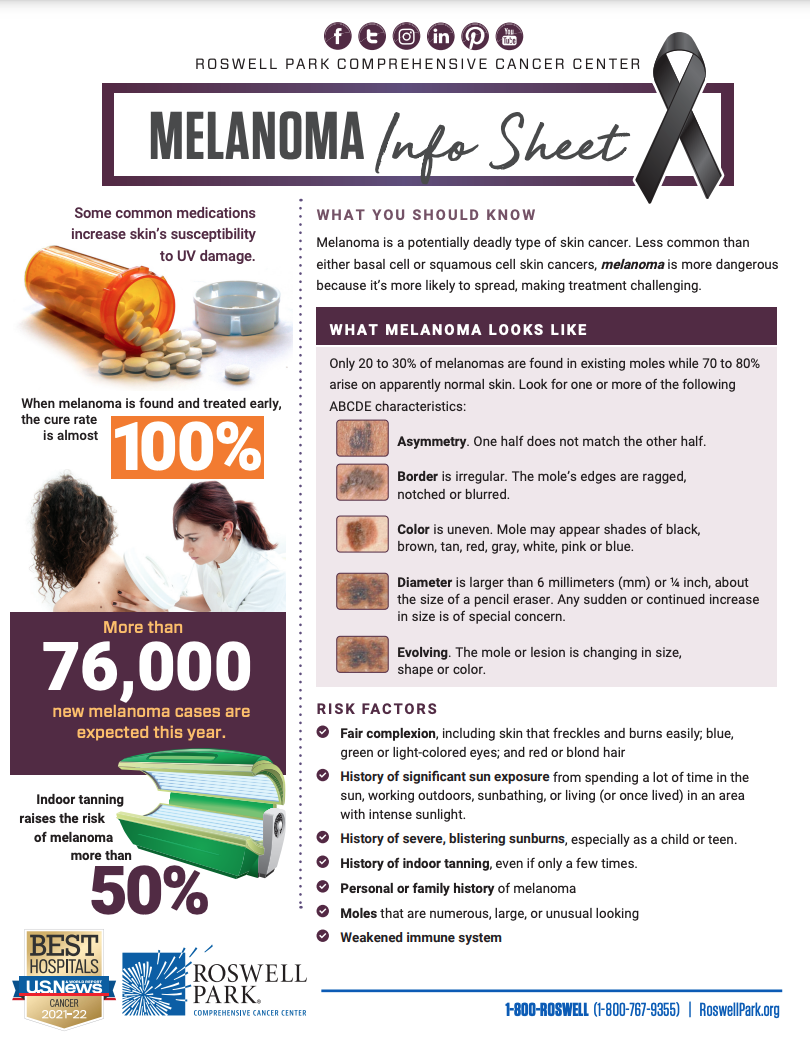A risk factor is anything that increases your risk for developing a disease. While anyone can develop melanoma, you should be especially vigilant about using sunscreen and checking your skin for early warning signs if you have any of the following risk factors:
- Excessive exposure to ultraviolet (UV) light that comes from the sun or tanning beds.
- Indoor tanning. Using tanning beds before age 20 increases risk for melanoma by 47%, and the risk increases with each use.
- Lighter skin. Having less melanin or pigment in your skin means you have less protection from ultraviolet light. People with red or blonde hair, light-colored eyes and freckles are also more likely to develop melanoma.
- History of sunburn. Just one blistering sunburn increases your risk.
- Many or unusual moles. Having more than 50 moles or large and unusual moles increases your risk for melanoma.
- A previous skin cancer, including basal cell, squamous cell or melanoma.
- Age and gender. Risk increases with age and men over 60 face the greatest risk. However, melanoma rates are increasing in people younger than 30, and melanoma is one of the most common cancers among young adults, especially women.
- Weakened immune system. A weakened immune system, such as from an organ transplant or AIDS increases risk.
- Xeroderma pigmentosum. This inherited condition makes the skin extremely sensitive to sunlight.
- Inherited genetic conditions. People with certain hereditary breast and ovarian cancer syndromes, or who have a mutation in the P16 or CDKN2A gene face increased risk for melanoma.
Is melanoma hereditary?
It can be. About 10% of people with melanoma also have a family member with melanoma. People with a family history of melanoma should receive routine skin exams. The more cases of melanoma in your family, the greater your risk. If you have a family history of melanoma or pancreatic cancer (these cancers can be associated with the same gene mutation), you should consider genetic screening to determine if you have a predisposition to the disease. Roswell Park’s genetics team can help assess your risk to determine if genetic testing is right for you.
